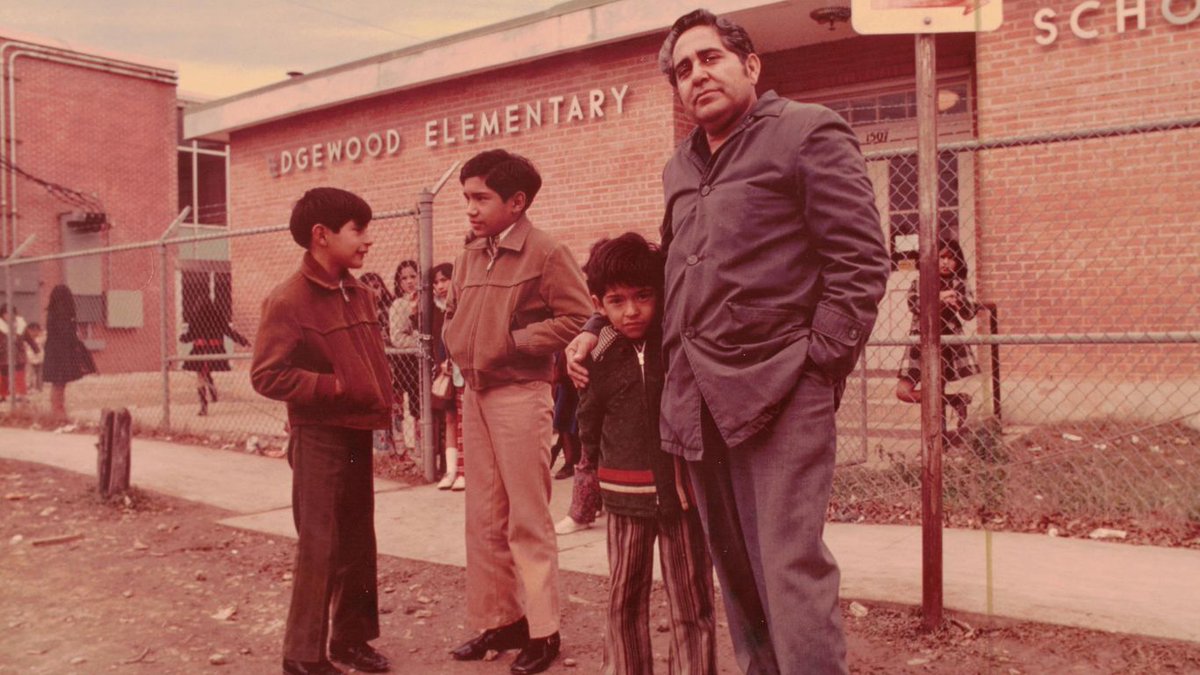The Impact of the San Antonio Independent School District v. Rodriguez Ruling
In 1973, SCOTUS ruled in San Antonio Independent School District v. Rodriguez that it was legal to fund public schools by local property taxes. This ruling has had a lasting impact on educational opportunities, particularly for students of color.

Ibram X. Kendi
Partner • #GirlDad • Scholar @BU_Tweets • Dir @AntiracismCtr • @NationalBook Award Winner • #1 NYT Bestselling Author • MacArthur Fellow • Surviving Cancer 🐍

-
In 1973, 50 years ago today, SCOTUS ruled in San Antonio Independent School District v. Rodriguez that it was legal to fund public schools by local property taxes. Funding disparities remain large today, creating an opportunity gap, in part due to this draconian ruling. A 🧵 1/ pic.twitter.com/jbH486e9Pd
— Ibram X. Kendi (@DrIbram) March 21, 2023 -
In 1968 in San Antonio, 400 Edgewood High students protested funding disparities. The Edgewood School District—where 90% of students were Mexican American—spent $356 per student. The Alamo Heights District—where 90% of students were White American—spent $594 per student. 2/ pic.twitter.com/UkxOVPz6el
— Ibram X. Kendi (@DrIbram) March 21, 2023 -
Why couldn’t both districts spend $650 or so per student? Texas legislators weren’t interested in ensuring their school districts provided more and equal funding for all students—or ensured schools with the most needs received the most funds. 3/ pic.twitter.com/SL58F6MtNa
— Ibram X. Kendi (@DrIbram) March 21, 2023 -
Texas legislators, like legislators today, opposed equal educational opportunity. In 1949, the Texas legislature passed the Gilmer-Aikin Bill, allowing towns with high property taxes to send more funds to their own schools, even as poorer districts had to rely on state funds. 4/ pic.twitter.com/VBbrA1yFvQ
— Ibram X. Kendi (@DrIbram) March 21, 2023 -
Parents knew this was wrong. Parents of students in the Edgewood district, including Demetrio Rodriguez, filed a lawsuit in June 1968 that made it to the Supreme Court. They argued that Texas's unequal funding system violated the Equal Protection Clause of the 14th Amendment. 5/ pic.twitter.com/E9dM08LE3P
— Ibram X. Kendi (@DrIbram) March 21, 2023 -
The SCOTUS majority 5-4 opinion, by Justice Lewis Powell, found Texas didn't violate the 14th Amendment. Justice Powell rejected the lower court’s finding of a correlation between poor people and poor districts—to claim poor people weren’t being harmed by the funding policy. 6/ pic.twitter.com/HCadVjqQuT
— Ibram X. Kendi (@DrIbram) March 21, 2023 -
Justice Powell also rejected the correlation between poor districts and people of color—to claim the policy wasn't harming POC. It does not “appear that there is any more than a random chance that racial minorities are concentrated in property-poor districts,” he wrote. 7/ pic.twitter.com/RaelGOwUe0
— Ibram X. Kendi (@DrIbram) March 21, 2023 -
“The majority's holding can only be seen as a retreat from our historic commitment to equality of educational opportunity," and allowing "children in their earliest years of the chance to reach their full potential as citizens,” wrote Justice Thurgood Marshall in his dissent. 8/ pic.twitter.com/8eXa9OuKvR
— Ibram X. Kendi (@DrIbram) March 21, 2023 -
“We would blink reality to ignore the fact that school districts, and students in the end, are differentially affected by the Texas school financing scheme,” Justice Marshall added. “At the very least," the law harms families living "where the per-pupil tax base" is low. 9/ pic.twitter.com/NfituYU7bJ
— Ibram X. Kendi (@DrIbram) March 21, 2023 -
A half-century later, low-income families, particularly low-income families of color, are still being harmed. “Nonwhite school districts get $23 billion less than White districts despite serving the same number of students,” according to an analysis by @EdBuild. 10/ pic.twitter.com/t8ccDXJuxT
— Ibram X. Kendi (@DrIbram) March 21, 2023 -
Fifty years after the SCOTUS ruling, unequal funding remains the norm in American education, creating unequal opportunities for students. To truly support equal opportunity is to support funding policies that close this glaring and persisting opportunity gap. 11/11 pic.twitter.com/yqe8vGl2VQ
— Ibram X. Kendi (@DrIbram) March 21, 2023
